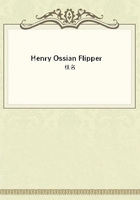
第81章
"This opinion, no doubt, appears simply ludicrous and vulgar to the gallant young fellows who are being trained for their country's service up the Hudson, and who already look upon themselves as its supports and bulwarks, but there is a substratum of common-sense in it which we commend to their consideration, because, if for no other reason, that the average American is the man who pays their bills and to whom they owe their education and future livelihood. If they do not accept his idea of the conduct and motives of action by which they may properly repay him the debt they owe, it certainly is fitting that their own idea should be indisputably a higher one. We begin to doubt whether it is not much lower. The country, in establishing this school, simply proposed to train a band of men skilled to serve it when needed as tacticians, engineers, or disciplinarians;the more these men founded their conduct on the bases of good sense, honor, and republican principles, the better and higher would be their service. The idea of the boys themselves, however, within later years, seems to be that they constitute an aristocratic class (moved by any thing but republican principles) entitled to lay down their own laws of good-breeding and honor. Accounts which reach us of their hazing, etc., and notably their treatment of the colored cadets, show that these notions are quite different from those accepted elsewhere. Now such ideas would be natural in pupils of the great French or Austrian military schools, where admission testifies to high rank by birth or to long, patient achievement on the part of the student. But really our boys at West Point must remember that they belong to a nation made up of working and trades men; that they are the sons of just such people; that the colored laborer helps to pay for their support as well as that of the representative of his race who sits beside them. Furthermore, they have done nothing as yet to entitle them to assume authority in such matters. They have recited certain lessons, learned to drill and ride, and to wear their clothes with precision; but something more is needed. The knight of old was skilled in gentleness and fine courtesy to the weak and unfortunate as well as in horsemanship. It was his manners, not his trousers, which were beyond reproach.
"It is not as trifling a matter as it seems that these young fellows should thus imbibe mistaken ideas of their own position or the requirements of real manliness and good-breeding. The greatest mistakes in the war were in consequence of just such defects in some of our leading officers, and the slaughter of the Indians in the South-West upon two occasions proceeded from their inability to recognize the rights of men of a different color from themselves. Even in trifles, however, such matters follow the rule of inexorable justice--as, for instance, in this case of Cadet Flipper, who under ordinary circumstances might have passed without notice, but is now known from one end of the country to the other as a credit to his profession in scholarship, pluck, and real dignity; while his classmates are scarcely mentioned, though higher in rank, except in relation to their cruel and foolish conduct toward him."(From the New York World.)"WEST POINT, August 29.--In my earnest desire to do justice to the grand ball last night I neglected to mention the arrival of the new colored candidate for admission into the United States, Military Academy, although I saw him get off at the steamboat lauding and was a witness to the supreme indifference with which he was treated, save by a few personal friends.
Minnie passed the physical examination easily, for he is a healthy mulatto. Whether this stern Alma Mater will matriculate him is still a question. It is really astonishing, and perhaps alarming, in view of the enthusiastic endeavors of the Republican party to confer upon the colored race all the rights and privileges of citizens of the United States, to see with what lofty contempt every candidate for academic honors who is in the slightest degree 'off color,' is received. As you are aware, there is at present a colored, or partly colored, cadet in the Freshman Class--Whittaker by name. This poor young mulatto is completely ostracized not only by West Point society, but most thoroughly by the corps of cadets itself.
Flipper got through all right, and, strange to say, the cadets seem to have a certain kind of respect for him, although he was the darkest 'African' that has yet been seen among the West Point cadets. Flipper had remarkable pluck and nerve, and was accorded his parchment--well up on the list, too--at last graduation day. He is made of sterner staff than poor Whittaker.
"A most surprising fact is that not one of the cadets --and I think I might safely include the professors--tries to dissemble his animosity for the black, mulatto, or octoroon candidate. When I asked a cadet to-day some questions concerning the treatment of Cadet Whittaker by the corps, he said : 'Oh, we get along very well, sir. The cadets simply ignore him, and he understands very well that we do not intend to associate with him.'
This cadet and several others were asked whether Minnie, if admitted, would also be ostracized socially. Their only answer was: 'Certainly; that is well understood by all. We don't associate with these men, but they have all the rights that we have nevertheless.' I asked if he knew whether Whittaker attended the ball last night.